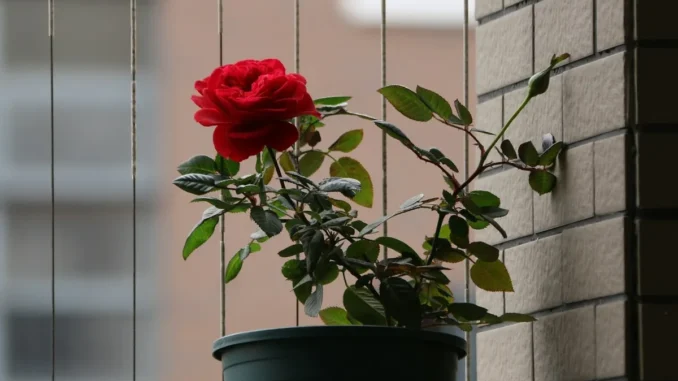
Here’s a shortened version of your story that preserves its emotional depth and core themes of grief, estrangement, and tentative forgiveness:
The roses always bloomed in May.
Not when his mother, Rose, died—that was November—but May, when she first planted them in his childhood garden. To Ryan, now 26, it felt poetic: life continuing despite death.
He watered the crimson rose on his windowsill, its soil mixed with his mother’s ashes. “Look, Mom,” he whispered, touching a forming bud. “Another one’s coming.” Salem, his cat, purred at his feet.
Then his phone buzzed. His father.
Ryan hesitated but answered. Larry was “under the weather,” the doctor said he shouldn’t be alone. Ryan reluctantly agreed to let him stay—just for a few days.
When Larry arrived, he looked older. Their conversation was stilted, polite. He noticed Ryan’s writing, mentioned how Rose had believed in him. Ryan deflected, emotionally armored.
But soon, Ryan realized his father wasn’t sick. Larry was sightseeing, running errands, catching sunsets—enjoying a break. When Ryan confronted him, Larry admitted he lied—just wanted to see his son.
“You could’ve asked,” Ryan snapped. “But you were never there—not when she was dying.”
Larry tried to explain, but Ryan exploded, years of grief pouring out. He’d been the one at Rose’s side, while Larry had vanished into bars and poker nights.
Still, Ryan let him stay one more night.
The next day, Ryan returned from work to find disaster: the rose pot—his mother’s ashes—shattered. His father had accidentally knocked it over.
Ryan was devastated. “She was all I had left.”
“I didn’t know,” Larry said, stricken.
“You never asked.”
Ryan made him leave. Alone, he salvaged what soil he could and replanted the broken stems. They didn’t survive—but he tried.
Three years later, Ryan had finished his novel—a story of loss and family. New roses bloomed each May in fresh soil, mixed with what little of his mother’s ashes remained.
Then came a call: his father had died of a heart attack. The funeral was Saturday. Ryan stayed home, staring at his suit, then writing a letter instead.
“I’m not at your funeral. Maybe that makes me a terrible son. But you taught me absence.
I’ve been angry, but I realized something: when you broke Mom’s rose, you also broke the shrine I’d built around her memory.
She’s not in the ashes. She’s in the little things. In me. And even, painfully, in you.
I didn’t come today, but I’m trying to forgive. I’m working on it.”
Later, Ryan placed a framed photo of his parents by the new rose plant. Outside, the spring rain fell gently.
“I’m working on it, Mom,” he whispered. “I’m working on it.”
Let me know if you’d like an even shorter summary or help adapting this into another format.